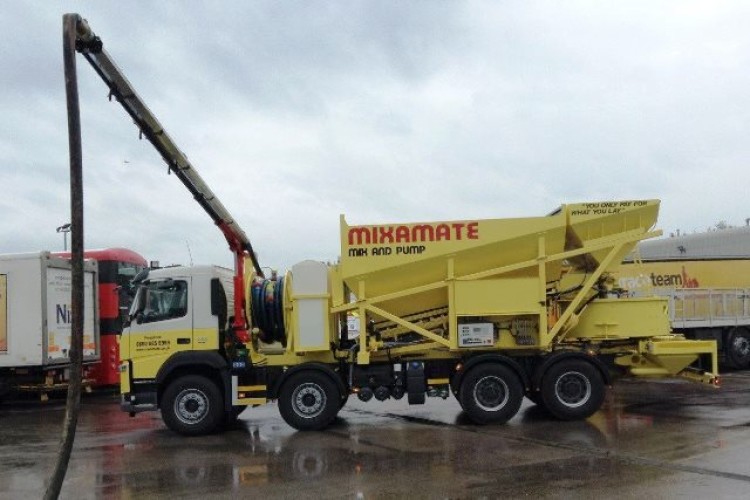Mobile batching plants, also called volumetric mixers, are historically defined as engineering plant rather than heavy goods vehicles. The justification for this is that they supposedly spend more time on construction sites off-highway than on the road. This means that like mobile cranes they do not have to have annual roadworthiness (MoT) tests and are not subject to the same weight restrictions as HGVs. Other aspects of the regulatory regime are also lighter, including driver hours.
A Department for Transport consultation paper1 published in December 2014 proposed bringing volumetric mixers, mobile cranes and other exempted vehicles into the same regulatory regime as other goods vehicles and ending their exemptions. Consultation closed in March and an announcement by the DfT on what happens next is overdue. Volumetrics firms are fighting a rear-guard action to maintain their special status.
According to Cemex, there is a growing trend in the UK market to supply concrete from volumetric vehicles.
A volumetric mixer is an HGV that carries the individual materials in separate bins required to make concrete such as cement and sand and mixes them at the customer’s site. An estimated 10% or the market, or two million cubic metres of the readymixed concrete a year, is now delivered by these volumetric mixers.
There are calls from certain parts of the industry, including the Mineral Products Association (see our previous report here), to bring volumetrics into line to create ‘a level playing field’ and improve safety in the unregulated sector. A 2014 House of Commons Transport Select Committee report2 noted that when the DfT's newly formed Industrial Heavy Goods Vehicle Task Force carried out spot checks, it found that five out of the six volumetric mixers that it stopped had mechanical defects that made them not roadworthy.
However, the British Aggregates Association (BAA) is backing the Batched on Site Association (BSA) in defending volumetric concrete mixer trucks, branding them ‘cartel busters’ because they allow small independents to compete with the multi-national majors.
The BAA says that those who want more regulation for volumetrics are ‘anti-competitive.’ The BAA said: “It would appear that the recently developed ability of small operators to enter this market is resented in certain quarters.”
The BAA says that the advent of volumetric concrete trucks has transformed the ready-mix industry. They can match deliveries to the amount required and avoid returned material penalties. They can also perform multiple deliveries and keep construction teams working effectively with concrete on demand. In addition, they provide a valuable service to the DIY market, especially at weekends when the large suppliers are often closed.
.png)
Because volumetrics are classed as plant rather than trucks, they can operate to their ‘design’ weight rather than the HGV limit. However, they are heavier than drum mixers and cutting their carrying capacity would make them uneconomic, it is argued.
While the BAA is prepared to accept that volumetrics should have to undergo annual MoT inspections and drivers ought to have HGV licences (not currently a requirement, despite the size of these vehicles), it draws the line at any restriction on working hours for drivers and the imposition of the Road Transport Directive (RTD).
BAA director Robert Durward said: “The BAA warned the Department for Transport in 2005 that the imposition of the RTD would mean the end of the road for owner drivers. We even met with DfT officials in London in an attempt to get this point across. Unfortunately no-one listened and, as a result, owner drivers have been all but wiped out. An unintended consequence perhaps, but one that was flagged up well in advance. The loss of this valuable entry point into road haulage has fundamentally changed the nature of the haulage industry, reduced competition and driven up prices.”
He added: “Not only have volumetrics increased customer choice and availability, but they have opened up a hitherto restricted market to some much needed competition. A degree of additional regulation would be appropriate but it must be sensitively applied. The grey areas must be eliminated not just for the industry but for those who police it as well. Every sector has its rogue operators but enforcement not regulation should be the first port of call. Under-regulation can be revisited if necessary; however over-regulation often cannot as the damage done cannot be reversed. What happened to owner drivers in the haulage sector provides a compelling reason to get this one right.”
Notes:
1.www.gov.uk/government/consultations/goods-vehicle-operator-licensing-exemptions
2. www.publications.parliament.uk/pa/cm201415/cmselect/cmtran/286/28602.htm
Got a story? Email news@theconstructionindex.co.uk



